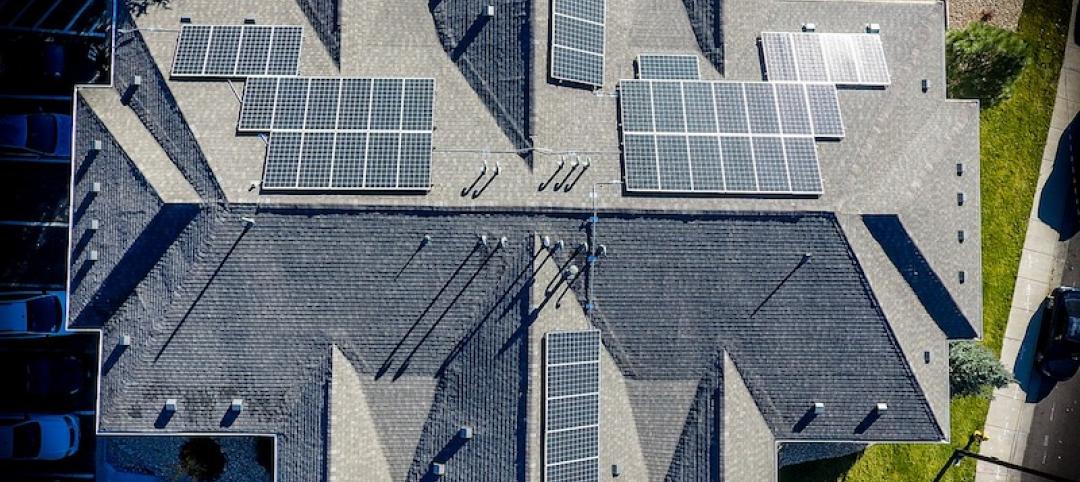The Washington, D.C., practice of global design firm Perkins&Will has pledged to eliminate embodied carbon in every commercial interiors space it designs by 2030.
“We’re setting this ambitious benchmark as a necessary response to the global climate crisis,” says Perkins&Will architect and sustainability expert Jon Penndorf. “We believe the District of Columbia and surrounding communities can lead the way for the rest of the country.”
Embodied carbon is an aggregate of all emissions released during ingredient extraction, product manufacturing, transportation, and end-of-life reuse or non-use. Statistics suggest embodied carbon is responsible for 11% of all global greenhouse gas emissions annually, the firm says. In the building sector, it accounts for more than a quarter of emissions.
“It’s been ingrained in architects and designers to think of heating and cooling as the biggest culprit, some of the worst climate change offenders—our building materials—are hidden in plain sight,” says Perkins&Will architect Rod Letonja. The problem is compounded by interior renovations and new tenant fit-outs. Old interior building materials frequently get discarded rather than reused, and with large leases turning over every 10 years on average, the emissions impact increases over time.
Related Stories
Codes and Standards | May 24, 2018
‘Amazon tax’ could slow Seattle’s construction boom
City imposes employer head count tax to fund affordable housing.
Codes and Standards | May 23, 2018
AAMA releases 2017/2018 fenestration market studies
Offers forecasts of industry trends.
Codes and Standards | May 22, 2018
Registration open for 2018 National Energy Codes Conference
U.S. Department of Energy event to be held July 15th-17th in Austin.
Codes and Standards | May 21, 2018
New standard tests quietness of floors
ASTM International method will help manufacturers test their flooring materials.
Codes and Standards | May 17, 2018
California will require solar panels on most new homes
Projected to add $10,000 to cost of new homes.
Codes and Standards | May 16, 2018
New resources offer tips on off-site construction
NIBS documents address using pre-cast concrete, and commercial and legal considerations of modular construction.
Codes and Standards | May 15, 2018
Blast testing of loaded mass timber structures yields positive results
Four tests covered a spectrum of blast loads.
Codes and Standards | May 14, 2018
Maryland makes general contractors liable for failure of subs to pay employees
GCs could have to pay for up to three times the wages owed.
Codes and Standards | May 10, 2018
Data collection, machine learning boost building efficiency
Sensors, software algorithms squeeze out waste.
Codes and Standards | May 9, 2018
OSHA and state safety agencies write more than 100 silica citations in 6 months
Actions tending to come with investigation of other site conditions.
















